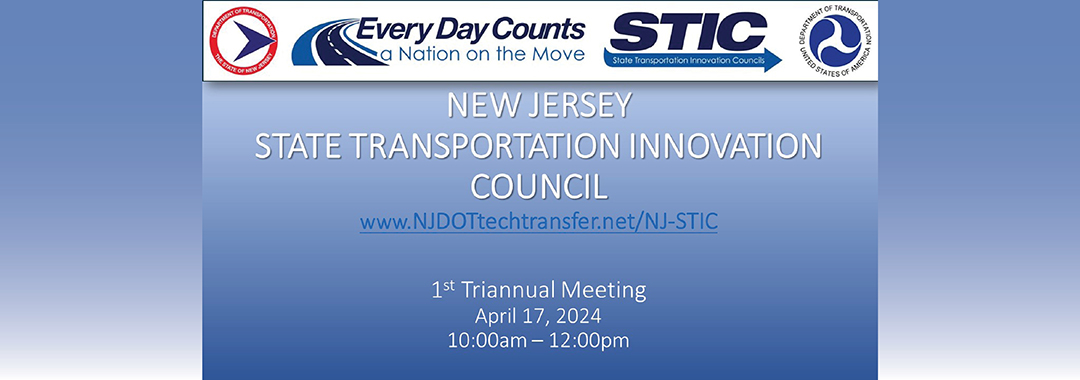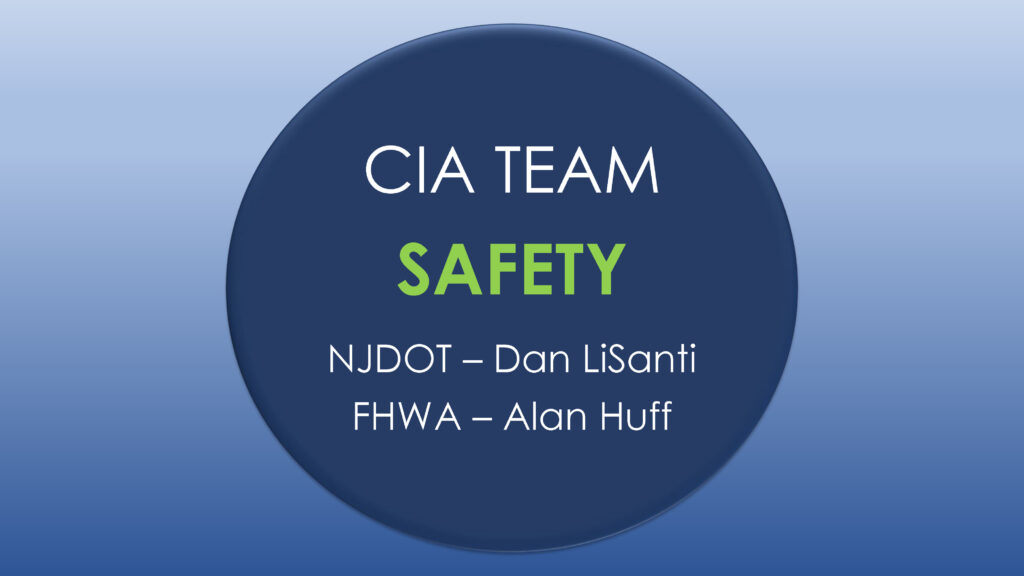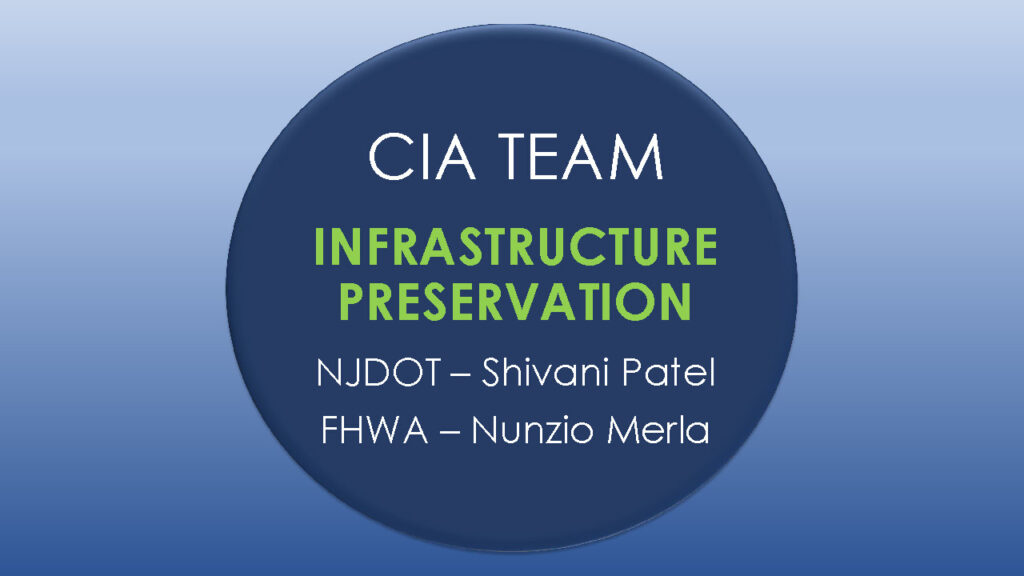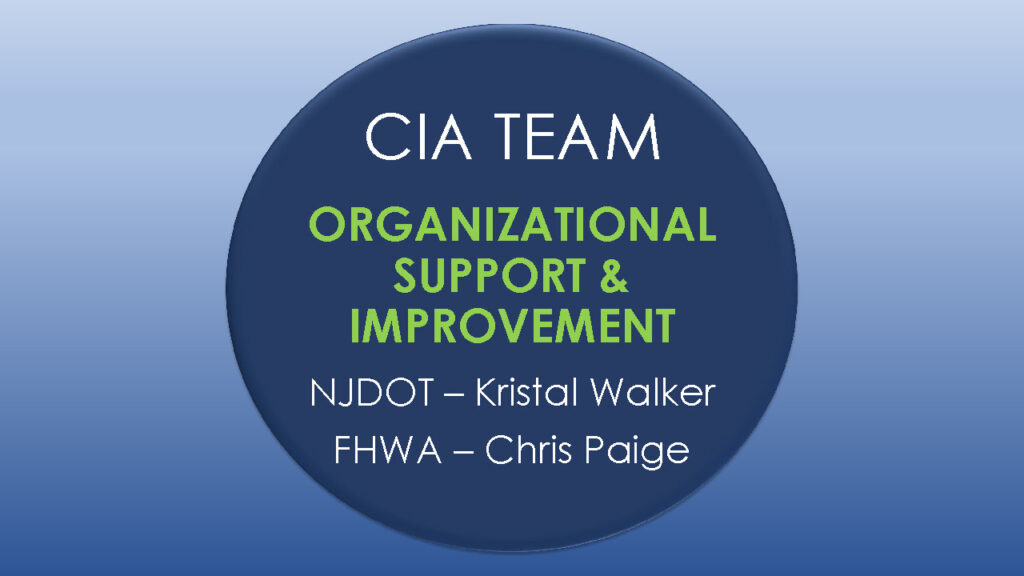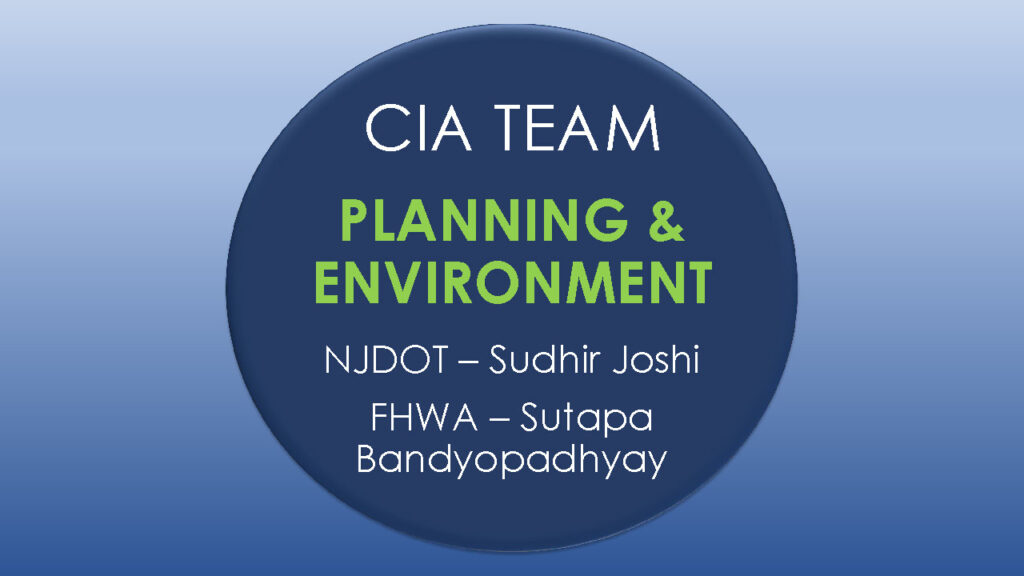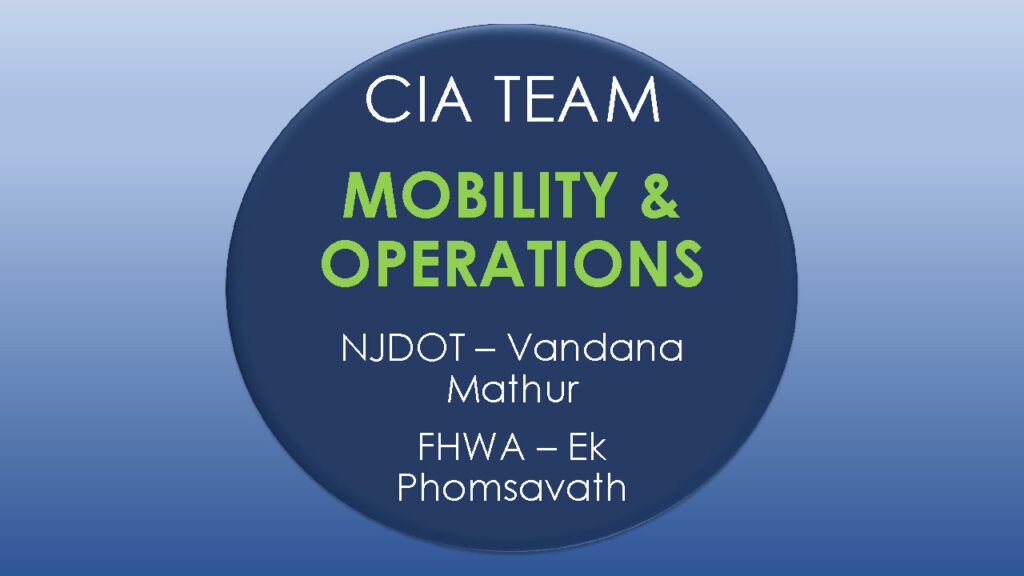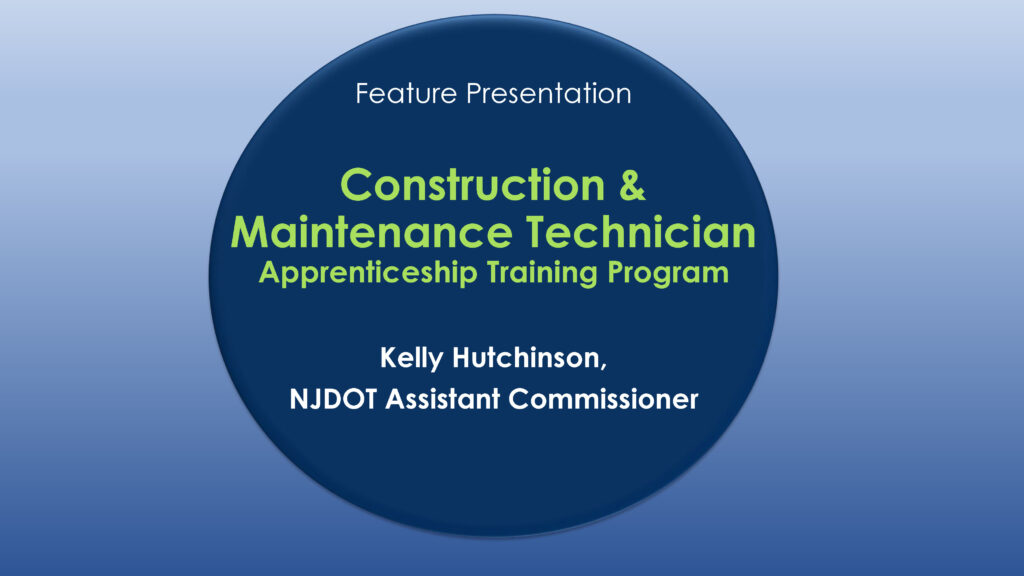The NJ State Transportation Innovation Council (NJ STIC) virtually convened for its 1st Triannual Meeting of 2024 on April 17, 2024. The meeting provided an opportunity for attendees to hear from the Core Innovation Area (CIA) Teams about their progress towards Every Day Counts Round 7 (EDC-7) goals and to hear a featured presentation on plans for rolling out a new Construction & Maintenance Technician Apprenticeship Training Program at the New Jersey Department of Transportation. The agenda for the meeting was distributed in advance of the event.
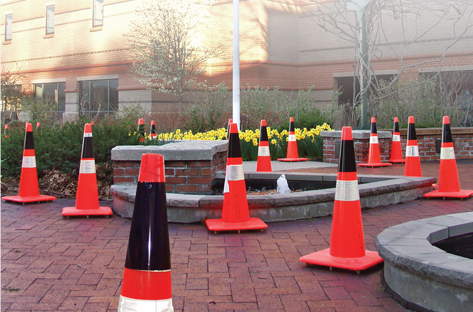
Welcome Remarks. Amanda Gendek, Manager of the Bureau of Research, Innovation and Information Transfer (BRIIT) greeted those in attendance and opened the first triannual meeting. She reminded participants that she will be acting as host until the innovation coordinator position is filled. Ms. Gendek announced that April 15th-19th is National Work Zone Awareness Week and asked participants to take pause and recognize the NJDOT employees who have lost their lives on the job and encourage participants to recommit themselves to the mission of increasing safety for both workers and motorists. She then gave an overview of the day’s agenda.
FHWA Updates. Christopher Paige, Innovation Coordinator and Community Planner from the FHWA NJ Division Office, provided FHWA updates. Mr. Paige encouraged participants to consider pursuing Accelerated Innovation Demonstration (AID) Grants for FY 2024 and noted the deadline for FY 2024 applications is May 28th, 2024. He also emphasized that EDC-7 progress reports should be submitted by May 10th, 2024. Mr. Paige noted that he recently attended the EDC-7 Greenhouse Gas Initiative Summit in Colorado with an NJDOT employee, Sushant Darji, and reflected on how some takeaways and model practices of peer agencies shared during the event may prove relevant to potential implementation in New Jersey. He reminded participants that past recorded webinars and other resources in support of the EDC-7 innovations are available at the FHWA Center for Accelerating Innovation website. Additionally, he encouraged attendees to subscribe to the EDC Innovator and other newsletters for regular updates on transportation innovation activities.
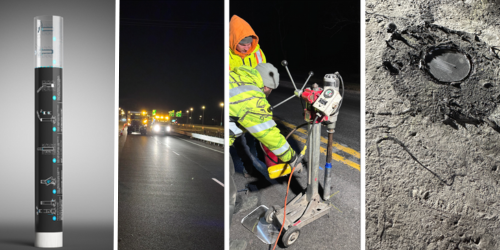
Core Innovation Areas (CIA) Updates. The Core Innovation Area (CIA) Team leaders gave updates on their progress toward fulfilling the deployment goals for their respective innovative initiatives. The updates were given by CIA Team leaders from the NJDOT and FHWA, covering EDC-7 initiatives under the auspices of the five CIA Teams that have been formed: Safety; Infrastructure Preservation; Mobility and Operations; Organizational Support & Improvement; Mobility and Operations; and Planning and Environment. Each team’s presentation provided insights into their ongoing projects and highlighted some of the implementation activities, accomplishments and challenges experienced to-date in meeting the deployment goals for the innovations.
Feature Presentation: Construction & Maintenance Technician Apprenticeship Training Program. Kelly Hutchinson, NJDOT’s Assistant Commissioner for Administration, presented on the newly developed two-year apprenticeship training program, aimed at strengthening the construction and maintenance technician workforce. Ms. Hutchinson provided some background on the reasons for establishing a new apprentice program. Previously, the entry point to NJDOT’s Construction Inspector title series required candidates to possess related experience that was difficult to attain outside the transportation construction industry. In addition, this entry level position required that candidates and appointees take and pass a Civil Service exam. These requirements led to significant staffing shortages because there was an apparent lack of truly qualified job applicants responding to NJDOT’s recruitment efforts and those that did qualify did not always pass the Civil Service exam. Some of NJDOT’s entry level employees were not achieving permanent status needed for advancement, which caused retention problems. Employees that NJDOT appointed were sometimes displaced by other individuals who passed the Civil Service exam but may not have necessarily been deemed a desirable candidate from a management perspective.
Additionally, NJDOT found that construction inspection employees accepted into the position did not possess consistent skills, attributable in part to having received varying levels of on-the-job training depending on the supervisor. With varying skills and training, their roles in construction oversight responsibilities varied from region to region and supervisor to supervisor, which led to a greater need to augment staffing with outside resources for inspection work. The development of the apprenticeship training program is a proactive effort by NJDOT to address these issues and challenges for recruitment and retention and increase the labor supply pipeline.
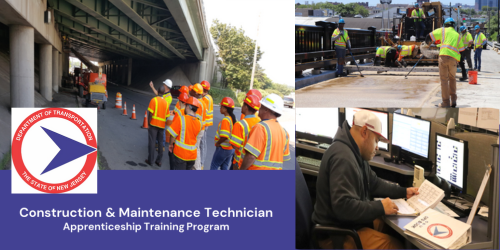
To reduce barriers to entry, the apprenticeship program will no longer require a civil service exam, or relevant construction experience. Instead, over the course of two years, apprentices will complete a 4-segment training program including a review of NJDOT’s specifications, online training modules, in-person inspection courses, and field training exercises. To ensure all information is consistent across departments and projects, apprentices will be exposed to a common curriculum and have a chance to develop their knowledge and skills and demonstrate their field inspection competency. Implementation of the training program is expected to begin in Fall of 2024, with a target group of all non-supervisory construction and management technicians.
Announcements and Reminders
NJDOT Technology Transfer Website Reminder. Attendees were reminded to refer to the NJDOT Technology Transfer website and, in particular, the NJ STIC section. The website is useful for staying up-to-date on NJ STIC activities and developments and for accessing a wide array of NJ STIC content, including an overview of the NJ STIC, the NJ STIC Charter, past meeting summaries, the status of current and past innovative initiatives, NJ STIC Grant Incentive Funding information, and articles and other materials that spotlight innovation and past NJ innovation accomplishments.
NJ Transportation Ideas Portal. Ms. Gendek encouraged attendees to participate in the NJ Transportation Ideas Portal. The portal is open to the public for submissions of future research ideas and implementation studies. The Innovation Advisory Team reviews these proposals for feasibility of future actions. She noted that the portal is always open to new research and innovation idea submissions for consideration for future collaborative efforts and investments.
STIC Incentive Funding. Ms. Gendek reminded participants of the availability of STIC Incentive Grants and that FHWA has announced funding of up to $125,000 annually. This funding is available to support the advancement of innovative initiatives underway – such as those being advanced by the CIA Teams, and other noteworthy innovations. Guidance for applicants can be accessed from the NJ STIC drop-down menu here on the NJDOT Tech Transfer Website. She noted that the staff from NJDOT BRIIT are available to answer questions and assist interested participants with grant applications.
Build a Better Mousetrap. Ms. Gendek mentioned that the New Jersey Build a Better Mousetrap (BABM) competition is currently underway and seeking submissions from state and local governments (e.g., municipalities, counties, and park commissions) who have implemented innovative solutions in transportation. Information on the key judging criteria and the entry forms for entering the competition are available at cait.rutgers.edu/mousetrap/. Attendees were also encouraged to watch the recently produced NJDOT video advertising the 2024 New Jersey BABM Competition. The BABM page on the Technology Transfer website also shares several video examples of past winning entries in recent years.
Next Meeting. Amanda Gendek reminded attendees that STIC meetings have moved to a triannual schedule. She shared the scheduled dates for planning and holding the STIC meetings in 2024. The next meeting will be hosted on August 7th, 2024, at 10 am.
Acknowledgements. The session concluded with expressions of gratitude to the guest speaker, CIA Teams, council members, and implementation teams. Their contributions were recognized as pivotal to the meeting’s success and the council’s ongoing endeavors.
A recording of the NJ STIC April 2024 meeting is available here. The day’s presentations can be found here and, in the sections, below, including the results of the interactive exercise.

